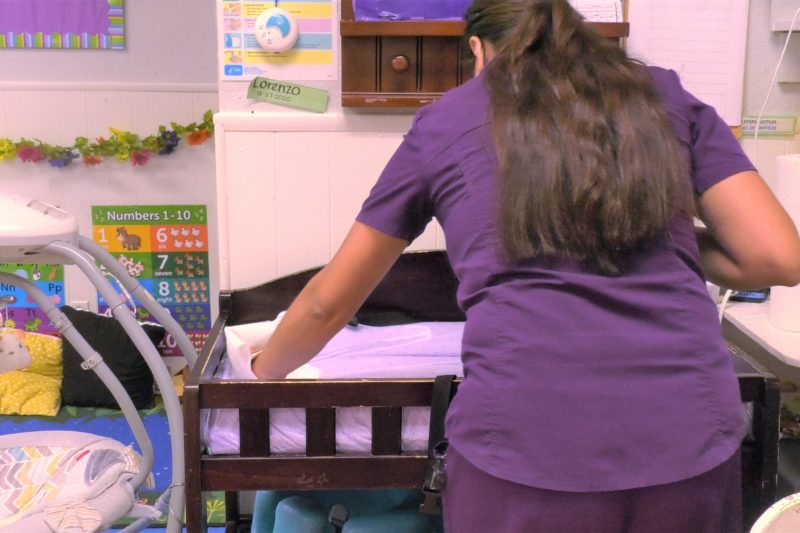Childcare Workers Seek Government Help to Improve Wages
By Jack Starks
Reporting Texas TV
AUSTIN, Texas — As Congress considers President Joe Biden’s Build Back Better framework this week, staff at childcare facilities are hopeful the bill can bring needed changes to the industry.
Cathy McHorse, a child care advocate with United Way for Greater Austin, said the child care industry suffers from a unique economic issue – parents pay thousands of dollars annually for child care, but workers’ make unlivable wages.
“It’s really a broken economic model because the parents who need care the most can afford to pay the least. What families pay doesn’t cover the cost of what they need to run the programs,” McHorse said.
Part of the discrepancy comes from lenient standards of care in Texas. McHorse said the state requires as little as one worker for every eleven toddlers.
Chuck Cohn, the owner of Angel’s Care and Learning Center, said that if he followed these minimums, the quality of his care would decline.
“If you want quality, you have to go above and beyond what the minimum standards are. We hired an extra teacher because we want to maintain quality,” Cohn said.
90% of a child’s brain development takes place before they turn five years old.
Parents are aware of the importance of early brain development and are willing to pay steep prices for superb care. The Economic Policy Institute found the average cost of childcare for a 4 four-year-old in Texas is $7,062 per year.
Cohn said prices are high for parents because hiring the teachers needed to provide high quality care divides the low wages even further.
“If we were to lower the cost, the business model falls apart,” Cohn said.
“We can’t pay the employees, and then you can’t hire the quality employees and you can’t retain them, so the quality goes out the window.”

A worker at Angel’s Care and Learning Center sanitizes the baby changing station on Monday, November 8, 2021 . Owner Chuck Cohn said Angel’s Care values high quality care, but struggles to afford higher wages for their employees. (Photo: Jack Starks)
At most childcare facilities, quality care includes cooking nutritious meals, leading active play and teaching pre-kindergarten curriculums. McHorse said the average pay for a childcare worker is $8 to $14 per hour.
Patsy Harnage, the director of Bright Beginnings preschool, said she has struggled to retain workers since the beginning of the pandemic.
“I had 15 staff members pre-pandemic, and then when the pandemic hit only three were willing to come back,” Harnage said.
Harnage is looking to the Build Back Better framework for assistance.
The framework is a federal bill that proposes to increase government subsidies for childcare and introduce universal pre-K for all three- and four-year olds. It would cap child care expenses at 7% of a qualifying family’s income.
“It’s wonderful to be appreciated by the federal, the state and the local governments,” Harnage said.
Nonetheless, the introduction of universal pre-K raises concerns among some child care directors.
Tamitha Blackmon is the director of Nehemiah Christian School, a small childcare facility that she operates out of her house in Austin.
Unlike larger childcare facilities and pre-schools, Blackmon is not partnered with the local school district, meaning the introduction of universal pre-K could take enrollment away from her school.
“If they don’t partner with family childcare and bring in teachers from the lead agencies, then what’s going to happen is we’re going to lose business,” Blackmon said.
“We have to really truly partner in order for universal pre-K to really work.”
Democratic senators aim to pass the Build Back Better framework Framework on Monday. It is unknown how Texas will implement changes if approved.